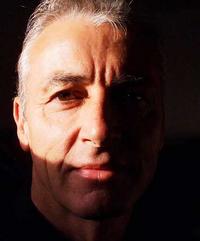
I'm terribly saddened to have to write that one of Australia's biggest motorsport legends, Peter Brock, has died. After a hugely successful career in Australian touring car racing, Brock turned his attention to closed-road "targa"-style events, and it was in just such a race that he crashed into a tree earlier today.
Although he may not be as well known around the world as fellow Aussie racers Mick Doohan, Jack Brabham, Alan Jones or even modern stars such as Mark Webber or Chris Atkinson, in his homeland he was highly revered.
His biggest achievement was winning the Bathurst 1000 six times in seven years. He also won the Australian Touring Car Championship on three occasions and was a frequent visitor to the podium in that series. He was known for being a Holden stalwart throughout his career and was responsible for developing some very quick road-going specials that are still in high demand today.
I'm not going to pollute this post with too much finger-pointing, but I honestly believe Targa events are some of the most dangerous in motorsport. Every time I watch the Targa Newfoundland or Targa Tasmania I'm amazed at how drivers with very little experience are able to take extremely fast cars out onto generally quick roads. This is not the tightly controlled world of the WRC, which tends to run on more rural roads than Targas (less to hit and usually twistier) and has better safety support. Now I'm not saying that Brock was either inexperienced or that it was the fault of the event organizers, I'm just saying that the probability of further Targa fatalities shouldn't be underestimated given the generally "amateur" style of these races.
Friday, September 08, 2006
Peter Brock, 1945-2006
Subscribe to:
Post Comments (Atom)










3 comments:
A co-driver was killed in the 1996 Targa Tasmania, and I'm sure that's not the only fatality to have ever occurred in Targa events.
I share your concern. In Newfoundland, the runoffs tend to be rocky, treed or wet. As the organizers put it, "ditches are where we store our rocks". This year for the first time, a car went into the water - fortunately only to the bottom of the sidewindows.
For the past two years, we've run a course for novice Targa Newfoundland entrants. The course notes are available at http://www.openroadmotorsports.com under "Targa school".
You commented: "drivers with very little experience are able to take extremely fast cars out onto generally quick roads. This is not the tightly controlled world of the WRC, which tends to run on more rural roads than Targas".
In Targa Newfoundland, to enter the Targa portion you must hold a competition license or have completed training recognized by the organizers. The speed limit on stages is 120 mph/200 kph. Roughly a third of the 40-odd stages are on rural roads where on the straight bits you can cruise at this speed. The remainder are a mix of town stages and twistier rural stages with much lower target averages.
The Grand Touring (TSD rally) portion has a much lower speed limit on stages (80 mph/130 kph).
Post a Comment